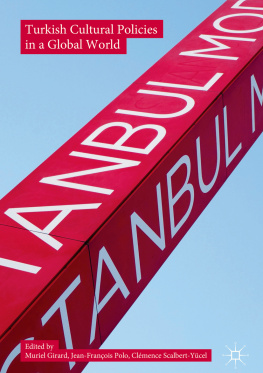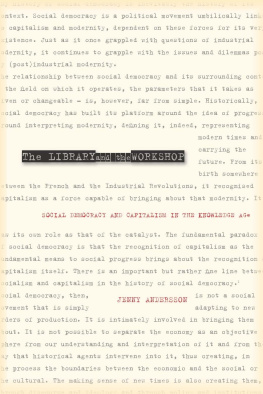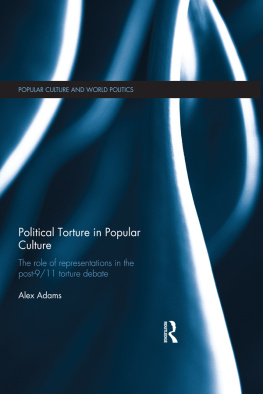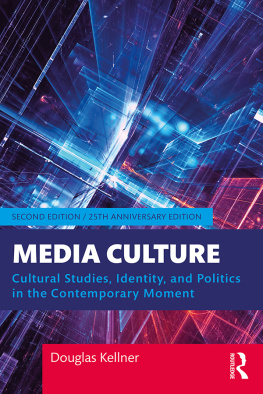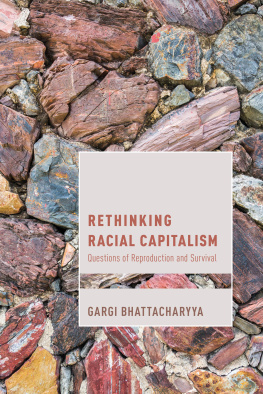Cultural Studies and the Juridical Turn
The relationship between culture and the law has become an emergent concern within contemporary cultural studies as a field, but the recent focus has been largely limited to the role played by cultural representations and identity politics in the legitimation of legal discourse and policies. While continuing this emphasis, this collection also looks at the law itself as a cultural production, tracing some of the specific contours of its function in the last three decades. It argues that, with the onset of neoliberal or late capitalism, the law has taken on a new specificity and power, leading to what we are calling the juridical turn, where the presumed legitimacy of the law makes other forms of hegemonic struggle secondary.
The collection not only charts the law and cultural policy as they exert their powerful if often overlooked influence on every aspect of society and culture, but it also seeks to define this important field of study and demonstrate the substantial role law plays in the production of our social and cultural worlds. In this trailblazing collection of contributions by leading and emerging figures in the field of cultural legal studies, chapters examine various ways in which this process is manifested, such as US legislation and Supreme Court decisions on gay marriage, immigration, consumer finance, welfare, copyright and the so-called victims rights, along with international comparisons from Europe and Latin America. It promises to be a pathbreaking analysis of our juridically determined conjuncture. This book was originally published as a special issue of Cultural Studies.
Jaafar Aksikas is Associate Professor of Cultural Studies at Columbia College, Chicago, IL, USA. He is also President of the Cultural Studies Association. His books include Arab Modernities (2009) and The Sirah of Antar: An Interpretation of Arab and Islamic History (2002). He has taught, researched and published widely in the fields of cultural studies, media and culture industry studies, critical legal and policy studies, American Studies and Middle Eastern studies.
Sean Johnson Andrews is Assistant Professor of Cultural Studies and the Humanities at Columbia College, Chicago, IL, USA. He teaches courses on cultural studies methods and methodologies, media studies, cyberculture and the digital humanities.
Cultural Studies and the Juridical Turn
Culture, law and legitimacy in the era of neoliberal capitalism
Edited by
Jaafar Aksikas and
Sean Johnson Andrews
First published 2016
by Routledge
2 Park Square, Milton Park, Abingdon, Oxon, OX14 4RN, UK
and by Routledge
711 Third Avenue, New York, NY 10017, USA
Routledge is an imprint of the Taylor & Francis Group, an informa business
2016 Taylor & Francis
All rights reserved. No part of this book may be reprinted or reproduced or utilised in any form or by any electronic, mechanical, or other means, now known or hereafter invented, including photocopying and recording, or in any information storage or retrieval system, without permission in writing from the publishers.
Trademark notice: Product or corporate names may be trademarks or registered trademarks, and are used only for identification and explanation without intent to infringe.
British Library Cataloguing in Publication Data
A catalogue record for this book is available from the British Library
ISBN 13: 978-1-138-64284-3
Typeset in Perpetua
by diacriTech, Chennai
Publishers Note
The publisher accepts responsibility for any inconsistencies that may have arisen during the conversion of this book from journal articles to book chapters, namely the possible inclusion of journal terminology.
Disclaimer
Every effort has been made to contact copyright holders for their permission to reprint material in this book. The publishers would be grateful to hear from any copyright holder who is not here acknowledged and will undertake to rectify any errors or omissions in future editions of this book.
Contents
Toby Miller
Jaafar Aksikas and Sean Johnson Andrews
Jaafar Aksikas and Sean Johnson Andrews
Kristen Fuhs
Pablo Castagno
Leah Perry
Pia Mller
Raphael Ginsberg
Kathalene A. Razzano
Mike Beggs, Dick Bryan and Michael Rafferty
Christopher M. Toula and Gregory C. Lisby
Martin Fredriksson
Katherine Lemons and Joshua Takano Chambers-Letson
Marcus Schulzke and Amanda Cortney Caroll
The chapters in this book were originally published in Cultural Studies, volume 28, issues 56 (SeptemberNovember 2014). When citing this material, please use the original page numbering for each article, as follows:
Jaafar Aksikas and Sean Johnson Andrews
Cultural Studies, volume 28, issues 56 (SeptemberNovember 2014) pp. 742780
Kristen Fuhs
Cultural Studies, volume 28, issues 56 (SeptemberNovember 2014) pp. 781808
Pablo Castagno
Cultural Studies, volume 28, issues 56 (SeptemberNovember 2014) pp. 809843
Leah Perry
Cultural Studies, volume 28, issues 56 (SeptemberNovember 2014) pp. 844868
Pia Mller
Cultural Studies, volume 28, issues 56 (SeptemberNovember 2014) pp. 869910
Raphael Ginsberg
Cultural Studies, volume 28, issues 56 (SeptemberNovember 2014) pp. 911946
Kathalene A. Razzano
Cultural Studies, volume 28, issues 56 (SeptemberNovember 2014) pp. 947975
Mike Beggs, Dick Bryan and Michael Rafferty
Cultural Studies, volume 28, issues 56 (SeptemberNovember 2014) pp. 976996
Christopher M. Toula and Gregory C. Lisby
Cultural Studies, volume 28, issues 56 (SeptemberNovember 2014) pp. 9971021
Martin Fredriksson
Cultural Studies, volume 28, issues 56 (SeptemberNovember 2014) pp. 10221047
Katherine Lemons and Joshua Takano Chambers-Letson
Cultural Studies, volume 28, issues 56 (SeptemberNovember 2014) pp. 10481077
Marcus Schulzke and Amanda Cortney Caroll
Cultural Studies, volume 28, issues 56 (SeptemberNovember 2014) pp. 10781102
For any permission-related enquiries please visit:
http://www.tandfonline.com/page/help/permissions
First of all, we would like to thank Larry Grossberg, without whose initial support, enthusiasm, and encouragement this project would probably have never materialized at all.
We would also like to thank Charlotte McSharry at Taylor and Francis/Routledge and Bryan Behrenshausen, Associate Editor of Cultural Studies for assisting in several crucial ways in the preparation and publication of this volume, both online and in print. Both were always prompt, meticulous, and tactful in coordinating and editing a complicated collection.
At Columbia College Chicago, we would like to thank all our colleagues in the Cultural Studies Program and elsewhere. Two colleagues in particular have shown abundant generosity, intellectual and otherwise: Ann Gunkel and Debra Parr, whose critical grasp of cultural studies, constant support, and critical conversations have been both an inspiration and steadying influence. We also would like to thanks all the students and friends in our cultural studies classes at Columbia College Chicago over the last several years. Their abundant optimism of the will (and pessimism of the intellect) has kept us moving towards, thinking about, and struggling for a better future and a better world.


